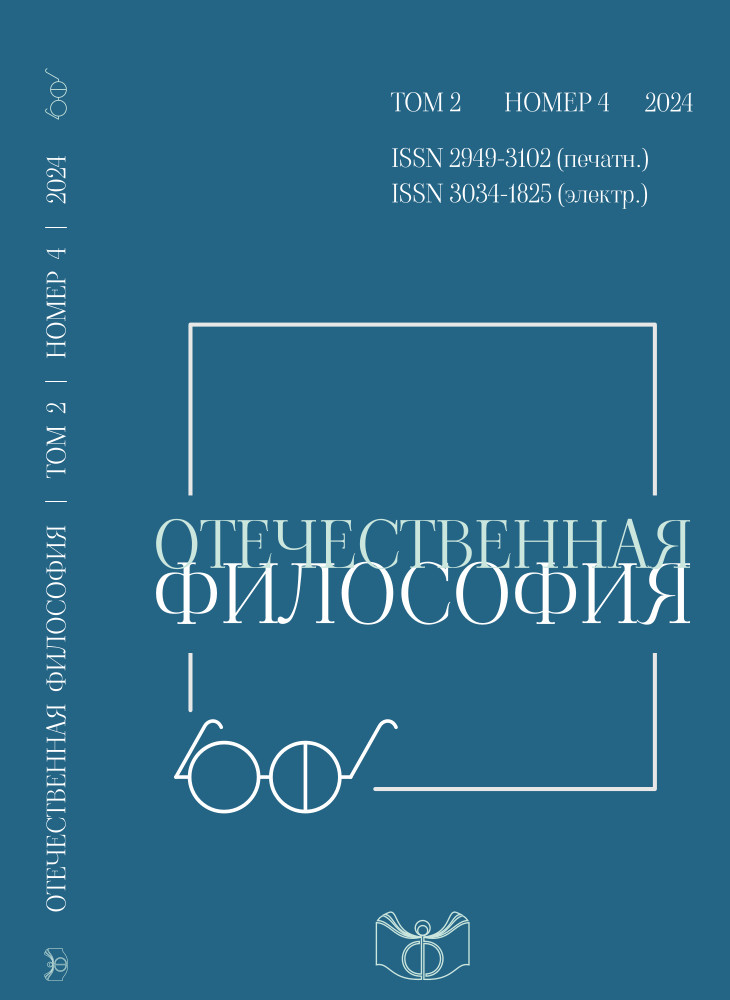Alexei Kozlov’s Panpsychism in the Context of Contemporary Analytic Philosophy of Mind
Keywords:
panpsychism, A.A. Kozlov, Russellian monism, idealism, spiritualism, philosophy of mind, Russian philosophyAbstract
This paper is intended to answer the question: can any connection be found between the classical panpsychism of Alexey Aleksandrovich Kozlov and modern panpsychism in analytical philosophy of mind? The main features of Kozlov’s panpsychism and the difficulties arising in the way of modern interpretation of his teachings are examined. Throughout the paper, the author demonstrates interpretive options that help circumvent these difficulties. There is specific understanding of panpsychism in the Russian tradition, which differs significantly from the modern one. This understanding does not close classical approaches from productive interaction with their modern forms, although it makes this task much more difficult. It is shown that many provisions of Kozlov’s panpsychism are quite close to modern naturalistic panpsychism. The most interesting provisions of Kozlov’s panpsychism for the modern context are highlighted. First, the epistemology-oriented character of Kozlov’s panpsychism. Second, the distinction between the act and content of consciousness in the matter of their reliability, as well as the distinction between the reliability of consciousness as a whole and abstractions isolated from it. Third, the neutral status of consciousness as an intermediary between reality and its representation. Fourth, the distinction between the metaphysical and physical worlds, that is, between genuine and seeming relations of substances. Fifth, the idea of a special relation between God, reality, and our own substance, which represents God as a directly perceived mediator linking us to the reality.


